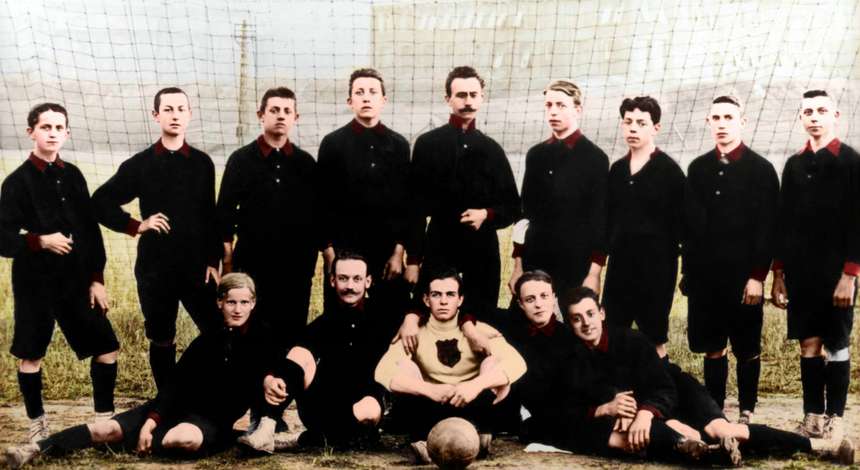
After long discussions with the club board, the men led by Ferdinand Stader succeeded in convincing enough gymnasts to play football and were able to set up their own section. Walter Scharf writes in his book ‘50 Jahre Bayer 04 – Die Geschichte einer Sportvereinigung’ (50 years of Bayer 04 – The history of a sports club): "We see you, dear readers, rising from your seats in spirit when we now introduce you to the names of the first Leverkusen football players, the founders of the football section: Ferdinand Stader, Ernst Meurer, Lorenz Meurer, Willi Lerch, Gustav Lerch, Ernst Hahn, Heinrich Thiel, Walter Geist, Kurt Barthel, Karl Teske, Hans Fischer, Ernst Geiger, Oskar Heun, Paul Linke, Max Sandbach, Ludwig Jone, Heinrich Alt.”
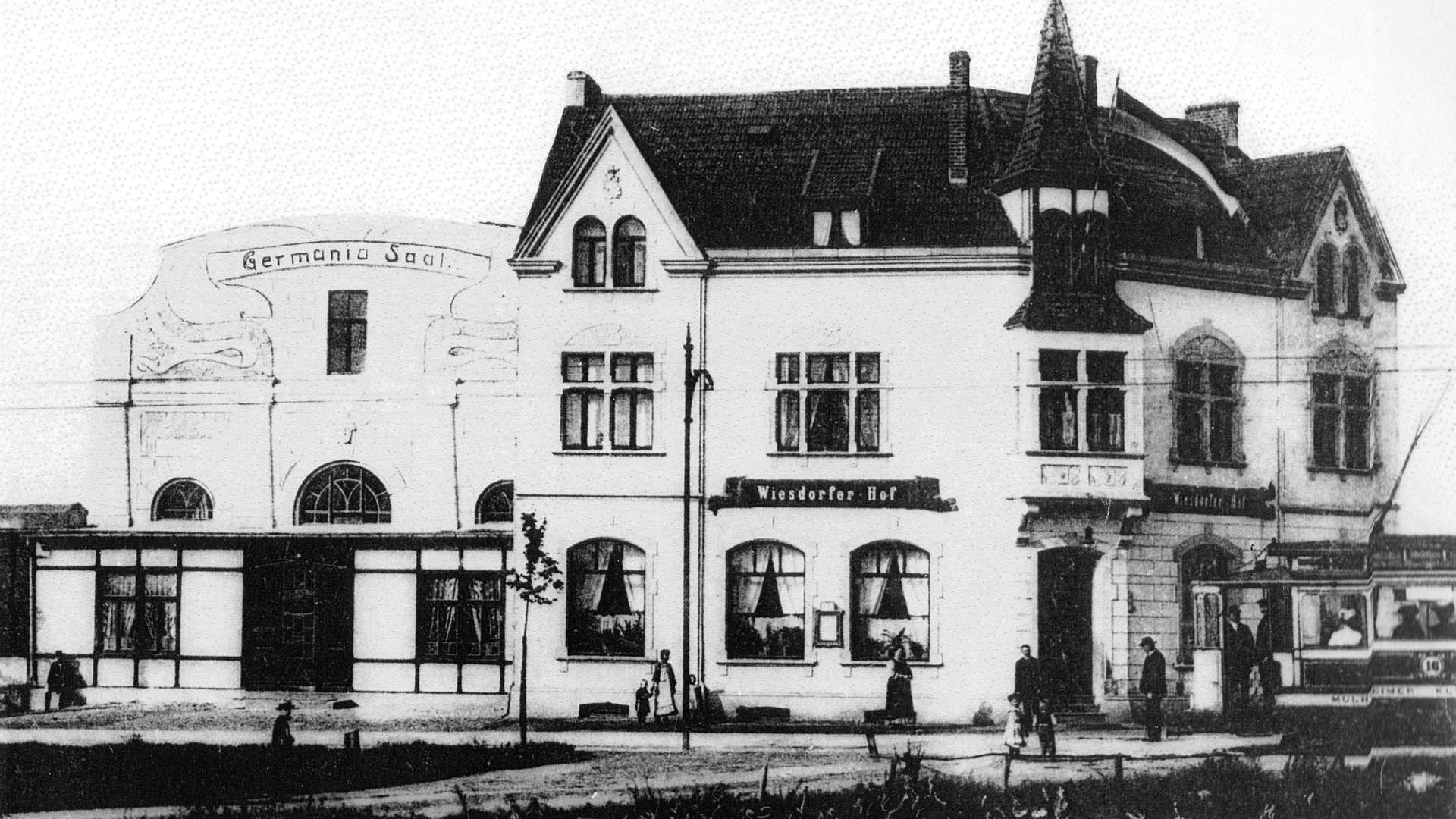
These men are the founders of our Bayer as we know it. What started on that night as a football section became a club in 1923 and many years later turned into SV Bayer 04 Leverkusen. The condition for gymnasts to be allowed to take part in football was the regular participation of the football players in the weekly gymnastic evenings, which they accepted with gritted teeth. The football section is so big a year later that their members reverse that condition at the annual general meeting and are then able to play football every day from that point on.
The first team photo in the new kit, back then called a ‘costume’, was taken at the inauguration of the Erholungshaus recreational hall in October 1908. Our first Leverkusen players proudly presented themselves in their new kit with black shorts and black shirts with red collar and cuffs, which they had to pay for themselves. Including the very expensive football boots, the ‘costume’ costed 16.90 marks. That colour combination, even though the club colours of TuS 04 are black and white, is still the reason for our club colours of black and red today.
Related News

Legend: Christoph Daum - The man who taught us to want
Christoph Daum was born on 24 October 1953 in Zwickau. As a child, he moved to West Germany with his mother and grew up in Duisburg. He developed a great enthusiasm for football at an early age, even though it soon became clear that his future lay less on the pitch than on the sidelines. Even at a young age, his passion for analysing, explaining and improving things became apparent.
Show more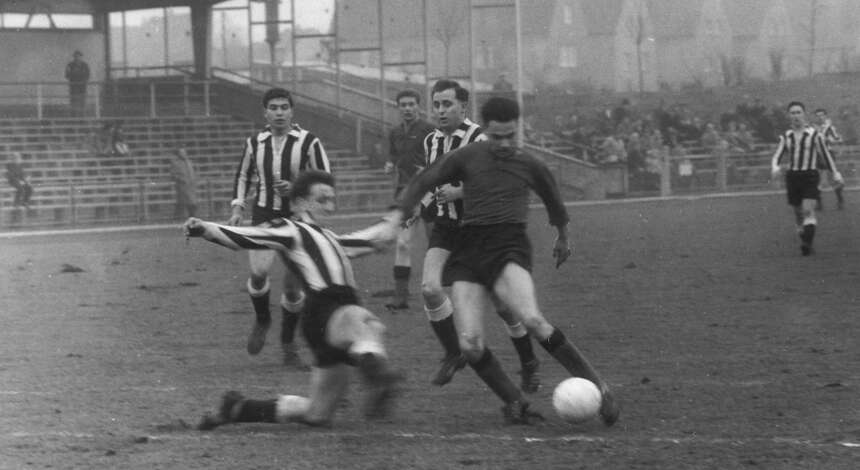
From the archives: 65 years ago - Another victory at last
When the Bayer 04 players celebrated Christmas in 1960, they spent the winter in second place in the Oberliga West 2 on 20 points - but already five points behind leaders Schwarz-Weiß Essen. However, coach Erich Garske's team are struggling to get back on track in the new year. A goalless draw against Bonner FV at home at the Ulrich Haberland Stadium was followed by a 2-1 away defeat in Erkenschwick. The following home game also yielded just one point. As a result, the team's promotion ambitions dwindled to a minimum, as the gap to the coveted spot has now grown to a challenging ten points.
Show more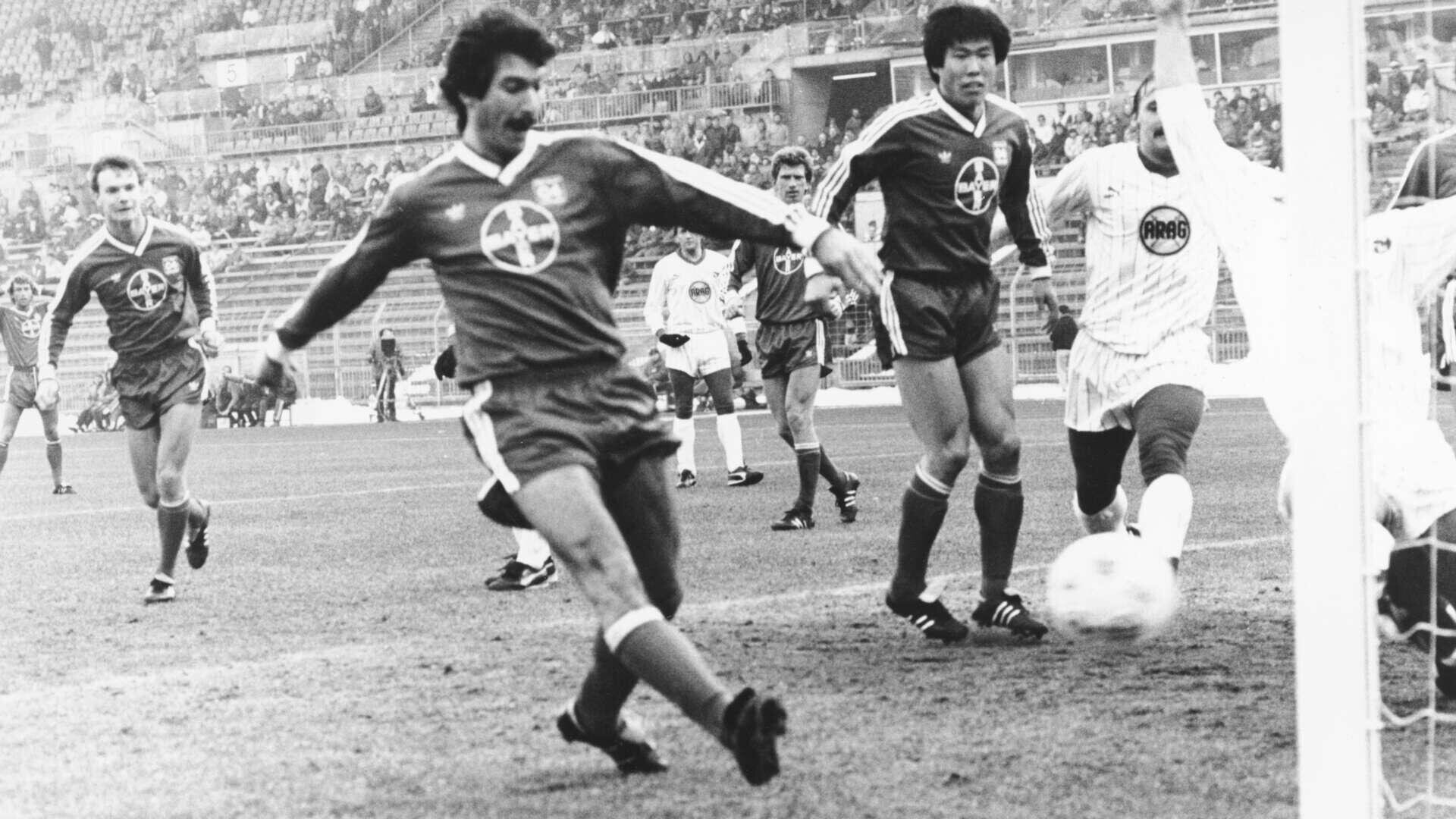
Goals of the month: From Waas to Tapsoba
In this video you can see impressive and important goals in Bayer 04 history from the month of February. It's not always about the beauty of the goals, but also a reminder of special games and players.
Show more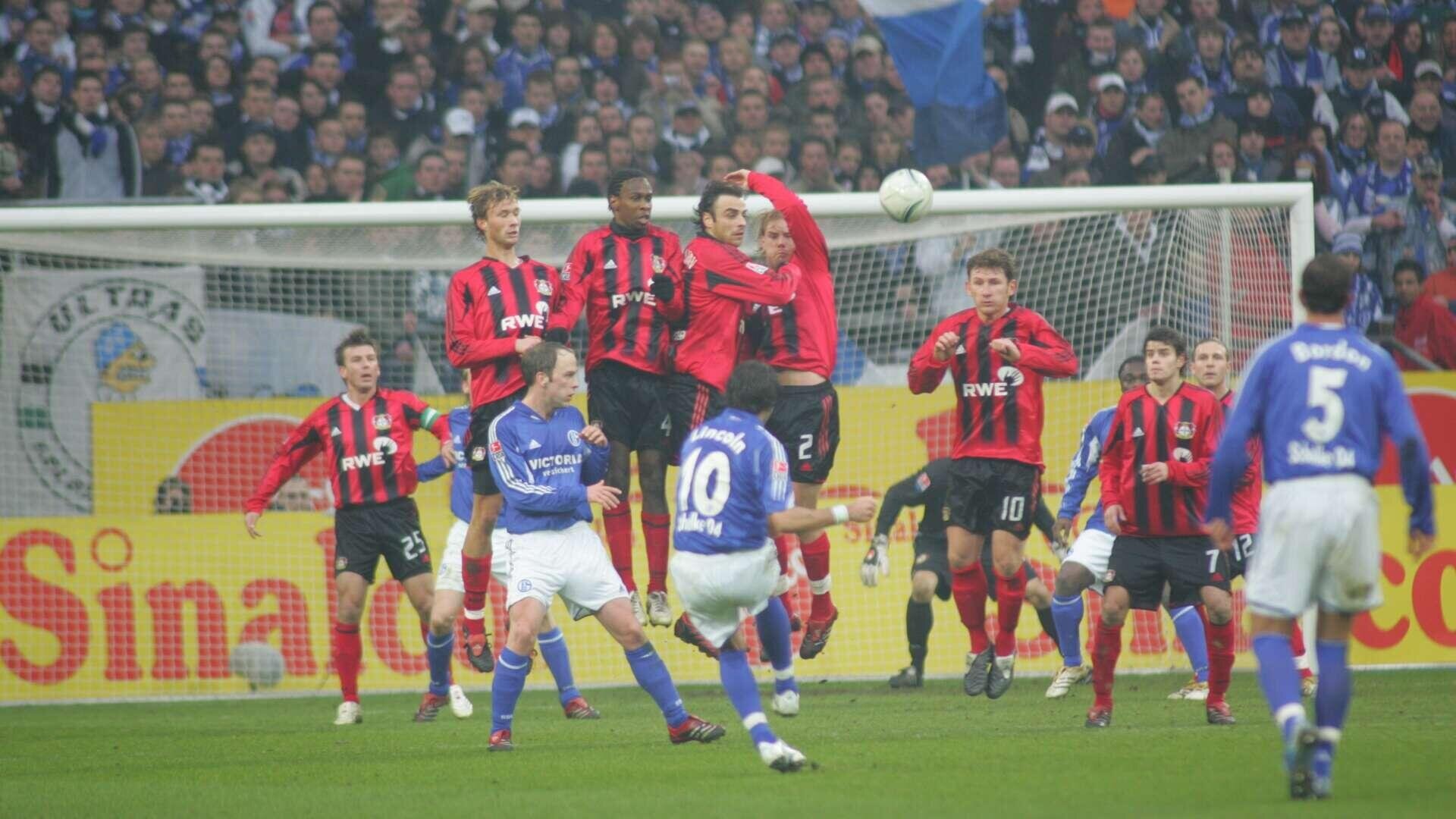
Match of the month: 20 years ago - A game of goals galore
It is 11 February 2006 and Schalke 04 and the Werkself kick off at 3.30 p.m. in a match that ends up being historic - at least from a Bayer 04 perspective.
Show more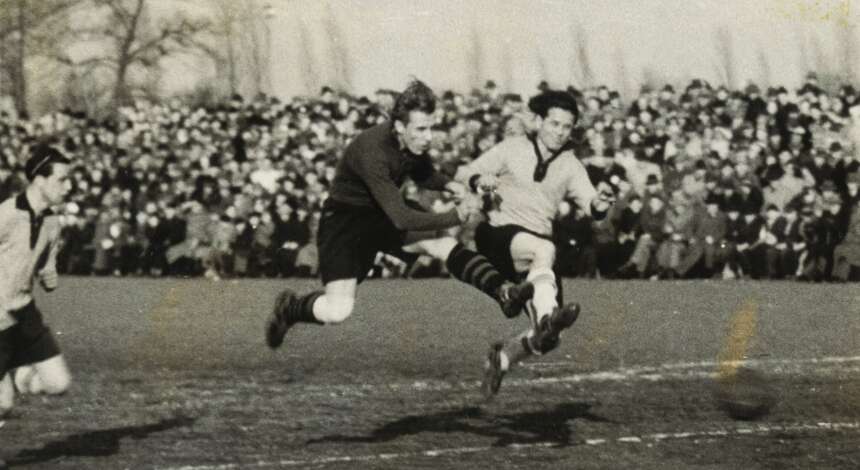
History: 75 years ago - The 1950/51 season (February)
As league leaders, the Werkself welcomed the relegation-threatened team from Rhenania Würselen. On 4 February 1951, 5,000 spectators line the touchlines despite the Sunday carnival parades. And they see a home team that is superior on the pitch. Without Theo Kirchberg, who was ill, and Emil Becks, who was suspended, the hosts attacked the opposing goal from the start. Battling against a strong wind in the first half, Bayer 04 created chance after chance, but were repeatedly thwarted by the Würselen goalkeeper. With the score at 0-0 at half-time, Karl Heinz Spikofski tried his luck on 55 minutes and hammered the ball into the opposition net from 20 metres out. Rhenania can no longer counterattack. The siege of the Würselen penalty area continued right to the end, but the game ended in a narrow 1-0 win.
Show more